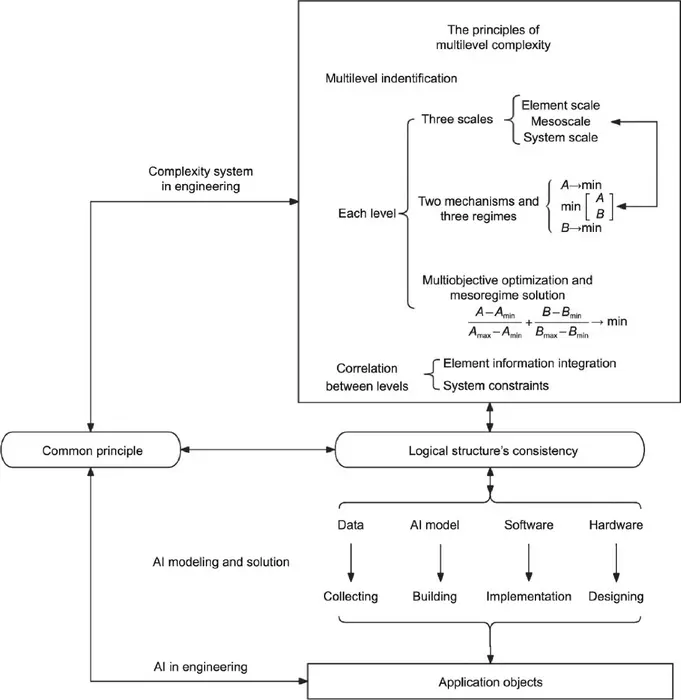Researchers Li Guo and Jinghai Li have proposed a transformative perspective on the development of artificial intelligence (AI) in their paper titled “The Development of Artificial Intelligence: Toward Consistency in the Logical Structures of Datasets, AI Models, Model Building, and Hardware?” which is scheduled to be published in the journal Engineering on May 14, 2025. This article marks a significant contribution to the ongoing discourse surrounding AI, specifically addressing the need for a coherent logical architecture that harmonizes datasets, AI models, and the associated hardware.
In their article, Li Guo and Jinghai Li contend that while contemporary AI systems exhibit remarkable capabilities in processing vast datasets and handling statistical complexities, they largely fail to account for the intricate spatiotemporal dynamics that characterize complex systems. This observation underscores a critical gap in existing AI methodologies, which often overlook the multifaceted nature of the data at hand. By advocating for a more consistent logical structure among AI components, the authors pave the way toward sustainable development in AI that better aligns with the evolving demands of engineering and beyond.
The authors initiate their discussion by acknowledging the global enthusiasm surrounding AI technologies and their vast potential across various sectors. They emphasize that as AI continues to evolve, it is imperative that researchers critically examine the underlying logical architecture guiding AI applications, particularly within the engineering realm. Their central thesis rests on the assertion that developing a coherent framework for datasets, models, model-building tools, and hardware is essential for the future of AI. This systemic consistency can significantly enhance functionality, reliability, and scalability, which are paramount attributes in engineering applications.
Delving deeper into the core issue, the authors illuminate the essential role that logical consistency plays in engineering research. The notion of logical structure encompasses the foundational design and interconnections among the components of AI systems, ensuring that they are cohesive and comprehensible. When the structure is robust, it facilitates easier maintenance and enables the modeling processes to replicate the intricate evolution of the systems under study. Such a nuanced understanding of system dynamics is necessary to unlock new levels of insight into both structural and functional characteristics.
Despite the advancements brought forth by AI, particularly through artificial neural networks (ANNs) and deep learning technologies, the authors highlight a disturbing trend: the prevalent use of "black box" models. These models, while powerful, fail to establish a clear and understandable relationship between the parameters and the real-world phenomena they seek to replicate. As a result, critical insights into the structural evolution of complex systems remain obscured. The authors argue that this disconnect underscores an urgent need to rethink the logical architectures guiding AI development.
Furthermore, they emphasize that the existing AI frameworks often lack the requisite capability to capture and reflect the multilevel and multiscale characteristics inherent in engineering applications. Current models struggle to effectively extract, analyze, and present the multifaceted physical properties encoded in the data. This inadequacy poses fundamental challenges to the application of AI in fields that rely on a comprehensive understanding of dynamic systems.
In response to these challenges, Guo and Li propose a paradigm shift in AI’s logical architecture, advocating for an alignment with the principles of multilevel complexity. They suggest incorporating the compromise-in-competition (CIC) principle, which has shown promise in mesoscience, into the design and optimization processes of AI models. By embracing these principles, AI systems could achieve significantly improved predictive capabilities, leading to more reliable and actionable insights.
The article also outlines actionable recommendations for advancing AI development. It calls for an in-depth exploration of multilevel complexity principles, focusing on their validity and relevance in AI contexts. The authors propose selecting representative cases from engineering disciplines to construct datasets and AI models based on a new logical framework. This approach aims to bridge the gap between theoretical exploration and practical application, ultimately leading to novel computational paradigms that harmonize with the complexities of real-world systems.
Envisioning a future where AI serves as a powerful tool for engineering, the authors articulate their vision for an intelligent engineering paradigm rooted in multilevel complexity principles. Such a paradigm would embrace a structured framework, exhibiting stability and enhanced predictive performance even in scenarios with limited training data. By integrating these principles into AI development, the authors hope to cultivate systems that reflect and leverage the rich dynamics of their underlying datasets.
As the discourse on AI continues to evolve, the authors call for interdisciplinary collaboration to tackle the pressing challenges of integrating physical principles into the logical architecture of AI. Such cooperation is essential in addressing the shortcomings of current AI methodologies and ensuring that future systems are both sophisticated and intuitive.
In conclusion, Li Guo and Jinghai Li’s paper stands as a pivotal contribution to the field of artificial intelligence and engineering, urging the necessity for logical consistency among core components of AI systems. Their prescriptive insights not only highlight the existing deficiencies within current models but also pave the way for a more enlightened approach to AI development. Adopting a multilevel complexity perspective could ultimately lead to revolutionary advancements in the AI landscape, fostering systems that are more capable of navigating the complexities of the real world.
As the field progresses towards deeper integration of AI into various domains, the recommendations put forth by Guo and Li may serve as a guiding framework, steering researchers and practitioners alike toward a future enriched with more robust, consistent, and effective AI solutions.
Subject of Research: Development of Artificial Intelligence
Article Title: The Development of Artificial Intelligence: Toward Consistency in the Logical Structures of Datasets, AI Models, Model Building, and Hardware?
News Publication Date: 14-May-2025
Web References: Full text of the open access paper
References: None available
Image Credits: Li Guo, Jinghai Li
Keywords
Artificial intelligence, AI models, multilevel complexity, logical structures, engineering applications.




